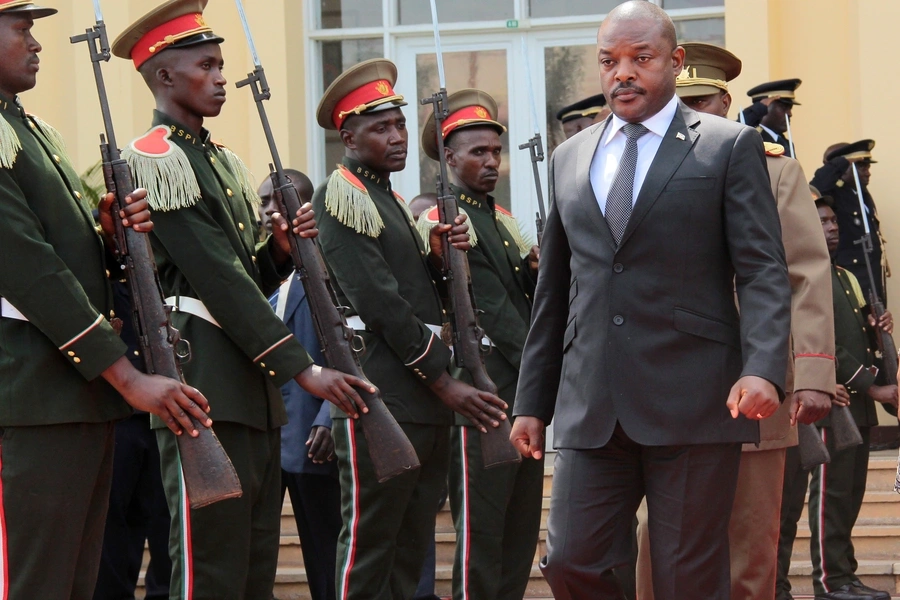Burundi's Vote Could Keep Nkurunziza President Until 2034

Michelle Gavin is a senior fellow for Africa studies at the Council on Foreign Relations in New York. From 2011 to 2014, she served as the U.S. ambassador to Botswana and to the Southern African Development Community. She started at CFR in February 2018.
Burundians are at the polls today to vote in a referendum on constitutional amendments that would, among other things, change the country’s rules around term limits. The change would make it possible for the current president, Pierre Nkurunziza, who has served since 2005, to continue to hold that office until 2034. It is the latest example of a powerful Central African trend that rejects norms around regular leadership transitions and instead embraces a governing style in which a single individual—far more than institutions, ideologies, or even party platforms—dominates decision-making in the name of stability.
More on:
While West African states have actively worked to shore up the principle that leaders should not seek to stay in power indefinitely, and many of Southern Africa’s ruling parties, while retaining political power, allow for real changes in the personalities at the top, the countries at the heart of the continent seem to be moving in a different direction entirely. Paul Kagame has been the de facto ruler of Rwanda since 1994 and formally president since 2000. Yoweri Museveni has been the president of Uganda since 1986. Joseph Kabila became president of the Democratic Republic of the Congo in 2001, and continues in that role despite the fact that his most recent term expired in 2016. Burundi, Rwanda, Uganda, and the DRC are very different places with very different political dynamics, but each serves to reinforce the sense in their neighbors that term limits are of dubious value at best.
As Central Africa moves in this direction, and the rest of the continent in another, it is no coincidence that the region is plagued by instability. The causes of region’s conflicts are interlinked and complex, to be sure. But it is equally true that the specter of conflict is at the heart of these entrenched leaders’ claim to political legitimacy. Each cultivates a narrative in which he is the only thing preventing a return to a more violent, chaotic past. The constant threat of instability has become inseparable from the governing ethos of its leaders and the state institutions that they shape.
The idea that only one man stands between a society’s ruin and its redemption makes for compelling drama, but it is a truly frightening basis on which to establish governing authority. Every decision—any decision—can be justified on the grounds of meeting the existential threat. Accountability and dissent become confused with plots against the state itself. Dialogues about the future become focused exclusively on questions about individual leaders. And worst of all, this approach leads the state, inevitably, off a cliff. Unless there are immortals among us, these states will outlast their leaders. Paradoxically, the men who claim to be bulwarks against chaos are ensuring that they will leave instability in their wake.
More on:
 Online Store
Online Store